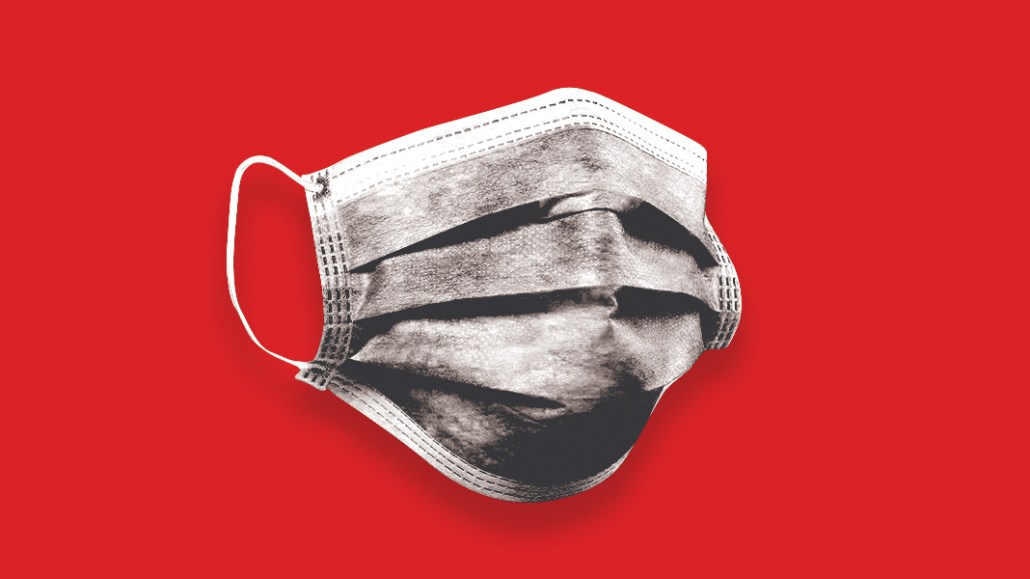Secure your place at the Digiday Media Buying Summit in Nashville, March 2-4
‘Implicitly rather than explicitly’: Advertisers no longer want to discuss the coronavirus

This Future of Marketing Briefing covers the latest in marketing for Digiday+ members and is distributed over email every Friday at 10 a.m. ET. More from the series →
The coronavirus is still around — ravaging entire states, with infection rates rising across the country.
But marketers would rather just, well, pretend it isn’t.
It’s a change from a few months ago, when coronavirus-response ads from advertisers were all the rage, as everyone sought to tell the audience that we were in this together.
The initial response ads varied by brand. Buick told you they were “here to help” during “these unprecedented times.” Walmart, meanwhile, celebrated its employees as “heroes.” Nike pitched working out and playing sports at home as a move for the greater good.
But it’s changed, four-odd months into this pandemic. For advertisers, it feels like customers are sick of being reminded of the virus, so creating new spots that directly address the pandemic could prove difficult even as it continues. That means marketers now have to figure out a new approach.
In early June, I spoke to marketers about moving past coronavirus messaging. They said that doing so was out of necessity as “people don’t want brands to constantly remind them of the circumstance they’re in anymore,” said Chris Sojka, CCO and co-founder of Madwell at the time. Getting back to marketing products was necessary not only to be useful but to help boost the economy, agency execs said at the time.
Now, as it’s become increasingly clear that any return to whatever “normal” may be won’t happen this fall, marketers are working to figure out how to continue to advertise amid continued uncertainty and fallout due to the virus. If you ask agency execs and employees how marketers are managing that task, they’ll tell you that it’s a balancing act as marketers don’t want to appear “tone deaf” but they also don’t want to overdo it with messaging like the initial response ads.
“It’s hard to acknowledge Covid directly and then gracefully pivot to selling something,” said Mark Pytlik, CEO of Stink Studios. “The best Covid advertising I’ve seen has acknowledged the pandemic implicitly rather than explicitly.”
Using implicit nods to the pandemic in copywriting — i.e. pitching clothing as “comfy” rather than perfect for working from home — has been popular in recent months, according to agency execs. That approach is likely to continue as doing so allows marketers to address what’s happening without directly mentioning it.
Some marketers are looking for ways to address the pandemic with “Covid response light” marketing as one copywriter put it. What that looks like will vary by brand but agencies are looking to avoid showing big gatherings of people in ads as consumers in much of the country are still unable to do so.
Of course, the coronavirus isn’t the elephant in the room simply because people are sick of hearing about it. As the response to the pandemic, especially whether or not to wear masks, has been polarized politically addressing the coronavirus directly could risk a brand getting swept up into a political conversation, according to agency execs, who say that the risk is not worth the trouble.
“The bigger the brand and the more people they appeal to, the more likely it is going to be polarizing to their audience,” said one agency exec of why some brands would rather not address the coronavirus directly in ads any longer.
Avoiding directly talking about the coronavirus isn’t entirely about politics. Marketing that addresses the pandemic head on isn’t easy and people don’t respond well to ads that are depressing, according to agency execs, who say that some still hope for a return to normal by early next year as it’s easier to manage a few months of uncertainty.
“People want something to look forward to and believe in,” said one media buyer. “Saying the world is back to ‘normal’ in a few months is something to believe and make life easier.”
More in Marketing

Thrive Market’s Amina Pasha believes brands that focus on trust will win in an AI-first world
Amina Pasha, CMO at Thrive Market, believes building trust can help brands differentiate themselves.

Despite flight to fame, celeb talent isn’t as sure a bet as CMOs think
Brands are leaning more heavily on celebrity talent in advertising. Marketers see guaranteed wins in working with big names, but there are hidden risks.

With AI backlash building, marketers reconsider their approach
With AI hype giving way to skepticism, advertisers are reassessing how the technology fits into their workflows and brand positioning.





